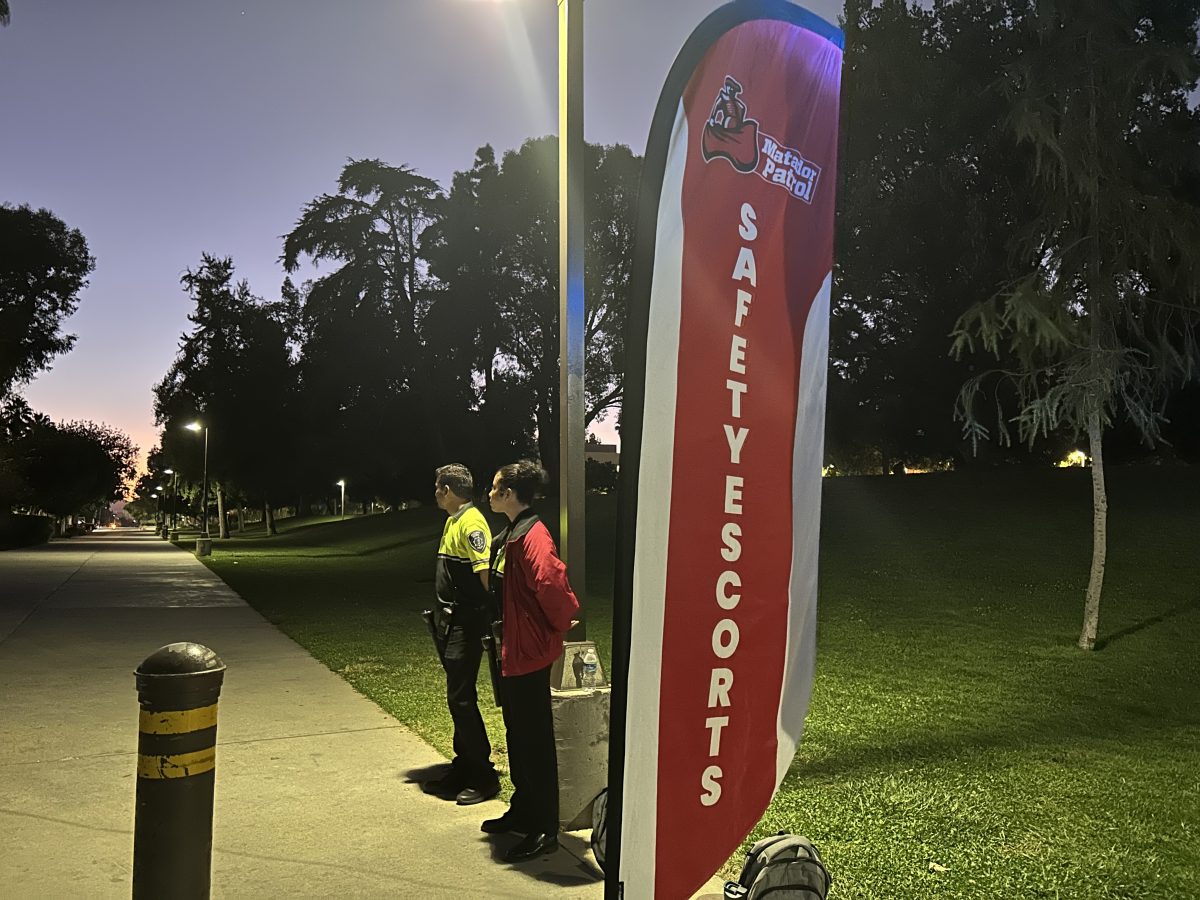After a long night class, there is the dreaded walk across campus to one’s car. The Matador Safety Patrol can give students peace of mind when making this trek in the dark.
The Matador Patrol provides safety escorts to students from 7:00 p.m. to 11 p.m., intending to ensure the safety of everyone on campus.The student-led safety service is designed to promote safety and provide reassurance as people move across campus.
The Matador Patrol is a paid, on campus position to students. Applicants undergo one week, nine hour orientation where they learn vital safety contacts, techniques and procedures including the use of radios, shift logs and aerosol defense methods.
The Department of Police Services Crime Prevention Unit oversees the program, guided by a mission statement to “Foster long-term partnerships between the community and law enforcement for the purpose of reducing the risk of victimization and strengthening trust within the campus community.”
Deputy Chief of Police Mark Benavidez, who directly supervises the program, acknowledged that police involvement does not always equate to a sense of safety for students.
“We certainly acknowledged that you know, traditionally speaking, we as police officers… our profession in general hasn’t done a good job of earning the trust with a lot of those communities and individuals who have traditionally been marginalized by police and whatnot,” said Benavidez. “So this is a great way for us to be able to seek alternatives to still providing a service and still helping our community feel safe.”
To request an escort, a student can call the non-emergency line on campus and give their name, location, contact information and a description of their clothing. The student can wait to be picked up, or meet an escort stationed on both ends of Matador Walk, near the Sierra Tower and Bianchi Planetarium. All information is logged, including any incidents that may have occurred on the walk, which are reviewed later by the senior adviser of the patrol.
These logs are important for assessing the program’s effectiveness. By tracking each escort’s duration and location, the patrol can evaluate whether its station points are well-placed and determine how widely the service is being used.
The patrol program is part of the CSUN’s larger efforts to create a safe learning environment. The university Title IX policy, which addresses issues including as sex discrimination, sexual harassment and sexual violence, is accessible online. New students are required to complete IX training as part of their orientation process.
The opportunity to escort peers has also been beneficial to the patrol members. Patrol member and Student Coordinator, Axel Cerezo, has found his role in the Matador Patrol as an opportunity to connect with others while ensuring their safety.
“The most rewarding experience would have to be connecting with people. I guess I’ve become more social, I got out of my comfort zone [and] I got to meet new people on campus. So that’s the good part about this job. That was the rewarding part,” said Cerezo.
These safety resources may contribute to a lower crime rate on campus. According to the 2024 CSUN Clery Report, rape and burglary rates at CSUN from 2021 to 2023 were lower than those reported by the National Center for Education ststics for higher education during the same period.
The presence of these services is reassuring to many students.
Zareen Supti, a student who used the escort service regularly for a semester, felt safe while walking back to her apartment after night classes.
When asked why the program was an important benefit to students, Supti said , “So that people can feel more safe and supportive. I know for a lot of people walking alone, specifically in the dark or after sunset, it can be traumatizing because they might be scared and with the Matador Patrol, they’re not scared because they literally walk with you, talk with you, and help you if needed.”
For more information on Matador Patrol, view their website here.











